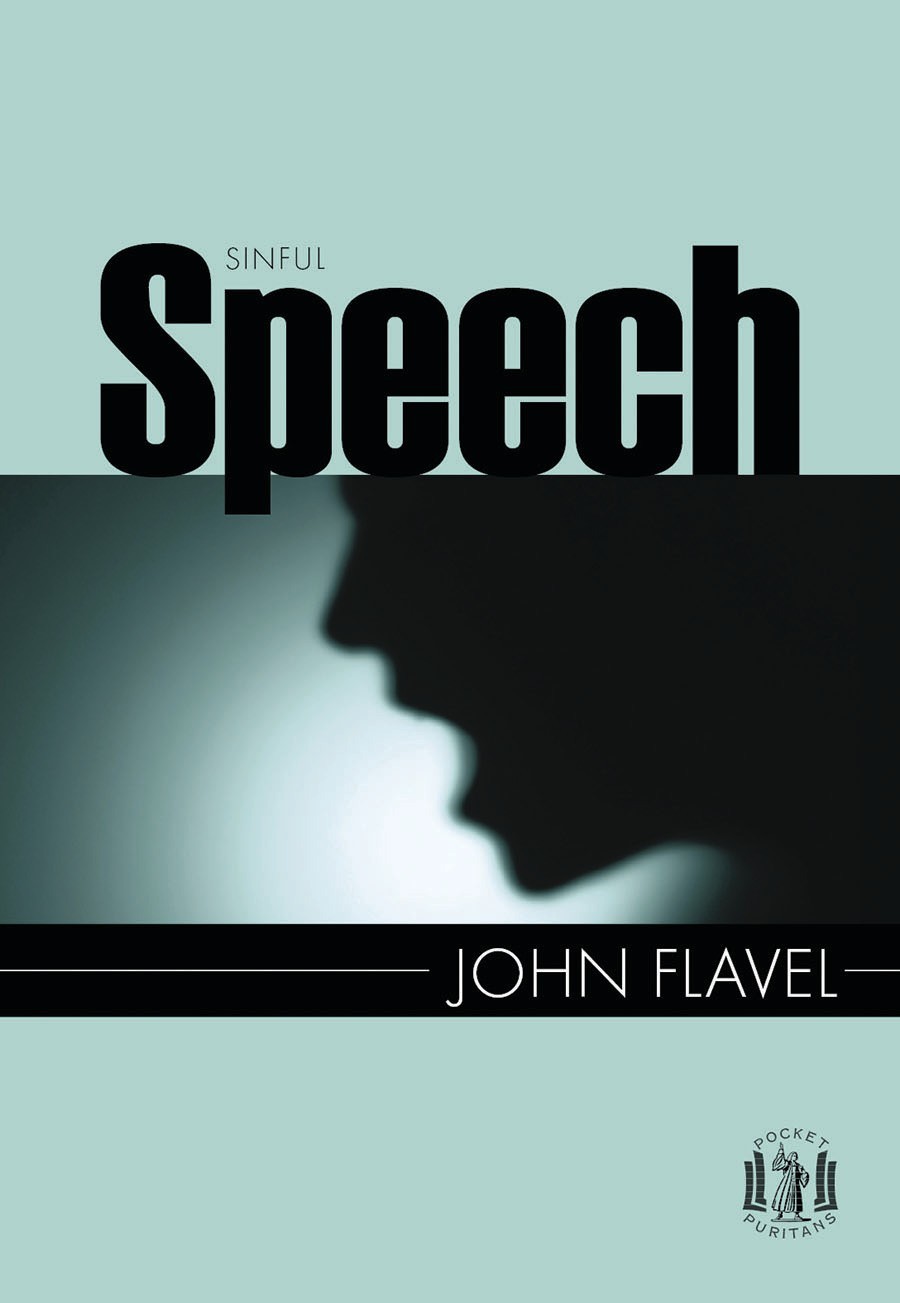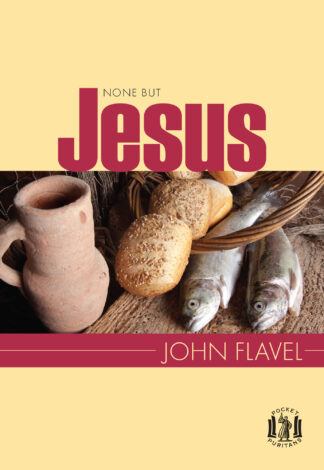John Flavel
An old writer on the Puritans tells us how Robert Atkins, in one of his last sermons at St. John’s, Exeter, before the Great Ejection of 1662, took the opportunity of declaring in the presence of Bishop Gauden and other dignitaries that ‘those ministers who beget converts to Christ may most properly be called Fathers in God.’
Judged by this Pauline standard, Atkins’ Devonshire colleague, John Flavel, belonged to the front rank of ‘Fathers’. So, at any rate, thought his first biographer who says, ‘God crowned his labours with many conversions.’ And so also thought his congregation who, following his death, placed a monumental inscription in his old church bearing a testimony which in 1709 brought about its removal; at that date the vicar, far removed from the ‘hissing hot’ evangelist who had once occupied the same incumbency, successfully complained to local magistrates about the inscription on the grounds that it was ‘worthy of a bishop’!
The eldest son of the Rev. Richard Flavel, John Flavel was born at Bromsgrove, Worcestershire, about 1628, and thus spent his childhood in the stormy years which led up to the Civil War in 1642. Following the defeat of the Royalist cause he ‘plied his studies hard’ as a commoner at University College, Oxford, and then, in 1650, entered the ministry to share in that sunny decade of spiritual reaping which preceded the restoration of Charles II. Speaking of the privilege of being born in the 17th century, and contrasting the then conditions with the ‘many hundred years’ of paganism in England and also with ‘those later miserable days, in which Queen Mary sent so many hundreds to heaven in a fiery chariot’, Flavel once urged his hearers to observe the special care of Providence:
that our turn to be brought upon the stage of this world was graciously reserved for better days . . . We are not only furnished with the best room in this great house, but, before we were put into it, it was swept with the besom of national reformation from idolatry; yea, and washed by the blood of martyrs from popish filthiness, and adorned with gospel-lights, shining in as great lustre in our days, as ever they did since the apostles’ days . . . If Plato could bless God that he was born in Greece and brought up in the time of Socrates: much more cause have you to admire Providence that you were born in England and brought up in gospel days here.
Flavel’s life and work was carried on in the county of Devon, first in the country parish of Deptford and from 1656 in the thriving sea-port of Dartmouth. Protestantism had early been established in Devon; half a century earlier the Puritan preacher John Barlow of Plymouth had bidden the people to remember that as ‘that matchless Peer’ Sir Francis Drake had spared nothing to establish a water supply for the town, so they also had a higher duty: ‘Shall we never be at any charge to cause the water of life to flow through the towns and places about us by the conduits of faithful preachers?’ Certainly the Gospel spread mightily amongst the seafaring homes of the South-West, and to the inhabitants of Dartmouth Flavel could write in 1671:
You are a people that were born under, and bred up with the Gospel. It hath been your singular privilege, above many towns and parishes in England, to enjoy more than sixty years together an able and fruitful ministry among you . . . And it must be owned to your praise that you testified more respect to the Gospel than many other places have done.’
Through the last years of the Protectorate and until that August day in 1662 when about 120 ministers in Devon and approaching 1,800 in England as a whole were turned out of their livings for failing to comply with the terms of the Act of Uniformity, Flavel preached every week at Townstall, the mother-church which stood on the hill outside the town, and fortnightly at the Wednesday Lecture in Dartmouth. Thereafter he took his place in the suffering ranks of the nonconformists and had a full share of the persecution which with greater or less intensity, and short intermissions, was to continue until James II fled the country in 1688.
The repressive legislation which followed 1662, while it broke the evangelical ministry of England in a public sense, scattered Gospel light into new areas and led not infrequently to the use of strange pulpits. We hear of Flavel preaching at midnight in the great hall of a house at South Molton; on another occasion in a wood three miles from Exeter; and – the most colourful site of all [though it could not have been a comfortable one] – at Saltstone Rock, an island in the Salcombe Estuary which is submerged at high tide: ‘Safe there from the hand of their persecutors,’ writes Lyon Turner, ‘they would linger in devout assembly till the rising tide drove them to their boats.’
But wherever Flavel was forced to wander he was never far from Dartmouth. What Ephesus was to Paul, Kidderminster to Richard Baxter, and, at a later date, Dundee to Robert Murray M’Cheyne, the Devon sea-port was to Flavel: ‘O that there were not a prayerless family in this town!’ was one of many petitions offered for Dartmouth. Taking advantage of the Indulgence given by Charles II in 1672 (for which he and 163 of his congregation wrote an address of thanks to the King) Flavel obtained licence for a Nonconformist meeting-house in the town, and, when this was withdrawn, he stayed at his post until the summer of 1682 when his person was in such danger that he took ship to London on July 10. From the capital he wrote on August 15, ‘I am hurried hither out of Devonshire by the fury of the storm that lies hard upon me, my estate is pursued as a prey by an outlawry, my liberty by a capias (arrest warrant).’
In London Flavel joined the congregation of his friend William Jenkyn and narrowly escaped arrest when the latter was seized in September 1684. Declining an invitation to succeed Jenkyn, Flavel again returned to Dartmouth where that same year he was burned in effigy by a mob – and, despite all hazards, maintained a ministry among his scattered flock until that November day in 1688 when the bells of Exeter, Plymouth, and no doubt of Dartmouth also, rang to welcome the coming of William of Orange – an event which led quickly to the flight of James II.
By the time of this ‘Glorious Revolution’ Flavel’s work was approaching its end. Speaking for his fellow-ministers he wrote, ‘We have long borne the burden and heat of the day; we are veteran soldiers almost worn out.’ While visiting Exeter in order to preach he died suddenly on June 26, 1691, in his 64th year.
We turn now from Flavel’s life to his usefulness as an author. In his own lifetime the influence of his books was considerable, as the story of a Christian bookseller in London during that period can illustrate. A ‘sparkish gentleman’ entering his shop in search of some play-books was advised to purchase Flavel’s treatise, Keeping the Heart. Picking up the book and glancing at its pages the customer exclaimed, ‘What damnable Fanatic was he who made this book?’ However, after further conversation the work was taken with a promise from the shopkeeper that the money would be returned if he still disliked it after a first reading. About a month later the same man, changed in appearance, re-entered the shop and addressing the bookseller said: ‘Sir, I most heartily thank you for putting this book into my hands; I bless God that moved you to do it, it hath saved my soul; blessed be God that ever I came into your shop.’ He then proceeded to buy a further hundred copies of the book!
Of the importance of Flavel’s writings in the 18th century abundant evidence exists. The leaders of the Evangelical Awakening which at last broke the spiritual torpor of that century drew much from his works. Jonathan Edwards frequently made use of him and Whitefield ranked him with John Bunyan and Matthew Henry.1 But his usefulness was pre-eminently seen among the common people. Dr Rice in giving a description of the congregation of Samuel Davies (who ministered in Virginia in the mid-eighteenth century and is best remembered today for his hymn, Great God of wonders, all thy ways) writes:
Households generally were furnished with a few standard works of good old times; and were expected to study them carefully. The writer has scarcely ever visited a family, the heads or fathers of which belonged to Mr Davies’ congregation, in which he did not find books or remnant of books, such as Watson’s Body of Divinity,2 Boston’s Fourfold State,3 Luther on the Galatians, Flavel’s Works,4 Baxter’s Call to the Unconverted, The Saint’s Everlasting Rest, Alleine’s Alarm,5 and others of similar character.
Forty years later Flavel was still being read in Virginia. In a snatch of autobiography, Archibald Alexander who was born at Irish Creek, Virginia, in 1772, comments on how Flavel’s writings were used in his spiritual awakening and continues: ‘This year 1788-89 was in many respects the most important of my life . . . I began to love the truth and to seek after it . . . To John Flavel I certainly owe more than to any uninspired author.’ In 1812 Alexander became the first Professor at Princeton Seminary and before his death in 1851 he had instructed some 1,837 future ministers and missionaries in the truths which he had first learned to love from the works of the old Devon Puritan.
It seems that almost any listing of the evangelical authors most popular in the 18th and 19th centuries is sure to contain Flavel’s name. One interesting occurrence is in the writings of Rowland Hill, educated at Eton, refused ordination by six different bishops and for many years an evangelist in the Whitefield tradition. In his immensely popular Village Dialogues, designed to impart evangelical ideas through the speeches of representative characters [somewhat after the style of Bunyan] two men are introduced discussing the spiritual help they had received through a Nonconformist minister’s widow who had recently died:
Mr Worthy: I have no doubt, but your acquaintance with the good old lady was very profitable.
Mr Lovegood: Yes sir; and still more so, as I got acquainted with her library: for though she had sold some of her husband’s books, yet others of them she had preserved. Among these I found many of the writings of Owen, Flavel, President Edwards, Gurnall’s Christian in Complete Armour,6 Archbishop Usher on Justification, Bishop Hall’s Works and others. These she used to call her Sunday company; and to these I had at all times free access: and about three years afterwards, when she found herself in dying circumstances, she gave me several of them as keepsakes . . .
No doubt Hill’s sketch corresponds to what was a common enough occurrence at the time he wrote and it gives an interesting confirmation of the place given to Flavel.
Testimonies such as the above are not confined to Nonconformist writers. Edward Bickersteth, for instance, an eminent secretary of the Church Missionary Society and friend of Charles Simeon, in the early 19th century, lists Flavel as an author necessary to ‘a Parochial Religious Library’, and for the Minister’s Library under ‘Collective Works of Protestant Divines’ he says of the same author: ‘There are few writers of a more unexceptionable, experimental, affectionate, practical, popular, and edifying character than Flavel.’
General popularity is by no means always a sure test of the importance of an author. But when that popularity continues over a long period of time and when a reputation is gained in ages when solid, experimental Christian literature was more esteemed than in our own, there is reason to take note. Certainly if the sustained regard of Christian readers is any guide, Flavel belongs to the very front rank of evangelical authors: according to the Dictionary of National Biography collected editions of his Works were issued in 1673, 1701, 1716, 1754, 1770 and 1797 – a list which could be extended into the nineteenth century and which, of course, passes over the many reprints on both sides of the Atlantic of some of his most popular individual works.
It is not difficult to set down some reasons why Flavel’s Works have attained this widespread usefulness and popularity.
1. Flavel is thoroughly and consistently evangelical. He is always at work turning our attention to Jesus Christ and setting out those great truths of which every generation has equal need. His attainment in this respect is the more impressive when one recalls the long-drawn-out sufferings of the period in which he wrote: his father, Richard Flavel, William Jenkyn, and other friends all died in prison. But such experiences never embittered him or led him to thrust the controverted church issues to the fore.7 He had greater work on hand. It was characteristic of the man that on the day he was discovered and nearly captured by the authorities preaching in a wood near Exeter his subject was, ‘Sirs, what must I do to be saved?’ The reader of his Works will soon find how he delights to handle texts which are full of the Gospel, for instance, John 3:16, ‘The admirable love of God in giving his own Son for us’;8 Ephesians 3:19, ‘to know the love of Christ . . .’ and Revelation 3:20 [sermons upon which run to 250 pp. in volume 4 of his Works!]. For this concentration upon the centralities of the faith Flavel believed there was sound justification:
Take an unregenerate, carnal man, let his life be reformed, and his tongue refined, and call him a zealous Conformist, or a strict Nonconformist; call him a Presbyterian, an Independent, or what you will; he is all the while but a carnal Conformist, or Non-conformist; an unregenerate Presbyterian, a carnal Independent; for the nature is still the same, though the stamp and figure his profession gives him be not the same . . . O my friends! believe it, fine names and brave words are of little value with God . . . To deceive ourselves in truths of the superstructure, is bad; and they that do so shall suffer loss, 1 Cor. 3:15. But to deceive ourselves in the foundation is a desperate deceit, and shipwrecks all our hopes and happiness at once.9
2. Flavel excels in conveying instruction. Belonging as he did to an age which believed that the gospel minister must be a teacher as well as an evangelist, he constantly aims at imparting knowledge. The principles upon which he acted as an instructor are set out in his excellent treatise The Causes and Cure of Mental Errors. In this work he presents the most convincing demonstration of the priority which must be given to the understanding if men are to be saved from the ruin of sin. This being so, the possession of spiritual knowledge is a paramount need: ‘For the understanding being the leading faculty, as that guides, the other powers and affections of the soul follow, as horses in a team follow the fore-horse.’ Knowledge was originally part of the image of God in man, but now in spiritual things ‘man’s life is but one continual error’. Of the danger resulting from this condition we have little awareness:
Spiritual dangers affect us less than corporal; and intellectual evils less than moral . . . men think there is less sin and danger in the one than in the other; not considering that an apoplexy seizing the head, is every way as mortal as a sword piercing the body. The apostle, in 2 Peter 2:1, calls them ‘damnable heresies’, or heresies of destruction. An error in the mind may be as damning and destructive to the soul as an error of immorality or profaneness in the life. This is not a matter of mere Christian liberty, but commanded duty; and at our peril be it, if we neglect it.
The preacher’s great work is to aid his hearers towards this end by constantly expounding the Scriptures and that in a manner calculated to make men understand and value them. The standard Flavel set for others he constantly sought to follow himself:
Truth lies deep, as the rich veins of gold do, Prov. 2. If we will get the treasure, we must not only ‘beg’, as he directs, v. 3, but ‘dig’ also, ver. 4, else, as he speaks, Prov. 14:23, ‘The talk of the lips tends only to poverty’. We are not to take up with that which lies uppermost, and next at hand upon the surface of the text; but to search with the most considerative mind into all parts of the written word, examining every text which hath any respect to the truth we are searching for, heedfully to observe the scope, antecedents, and consequents, and to value every apex, tittle, and iota; for each of these is of Divine authority, Matt. 5:18; and sometimes greater weight is laid upon a small word, yea upon the addition or change of a letter in a word, as appears in the names Abram and Sarai.
Certainly the six volumes of expository material which Flavel has left us show him to be one of the most instructive and informative of the Puritan writers. And it is one of his foremost merits as a teacher that he knew how to convey knowledge in a form which is at once lucid, interesting and easy to retain. He has plain words suited to the capacity of all his Devon hearers.10 There is a vast fund of illustrations drawn from nature and church history to hold our attention. Yet he does not overload his material with anecdotes; rather he uses them with a skill not found in some of the more racy writers of the 17th century. He has also a rich store of pithy quotations to draw upon, and these not infrequently add their own force and interest. Working as he did towards the end of the Puritan period he had a great wealth of existing literature to draw upon and in Flavel one repeatedly meets the best writers who had gone before him; the Scottish divines he knows from John Knox through to Samuel Rutherford, and the English from John Bradford and John Foxe, on through William Perkins, to the divines whom he describes as ‘lately sitting at Westminster now in glory’. If anyone wants to find out the best authors of practical divinity in the century which followed the Reformation, John Flavel’s quotations will provide a fine guide.
3. Flavel’s writings reveal him as a deeply experienced Christian and therefore as one well fitted to lead us in such experimental subjects as communion with God, prayer, and the life of faith. In the best sense of the word he is a devotional and practical writer. If he speaks to our minds it is in order to move our affections and stir us to attain a higher degree of Christian experience. Rarely does he handle a subject without making it speak to us, and the extent to which he succeeds is related to the way in which the weight of his own feelings comes through to us. What we hear him saying to younger ministerial brethren in the ministry tells us much about himself:
Keep yourselves close night and day at your studies and most fervent prayers: He will make the best divine, that studies on his knees . . . It is one thing to be learned in the truths of Christ, another to be taught by him, as the truth is in Jesus . . . As ever we expect the truths we preach should operate upon the hearts of others, we first labour to work them in upon our own hearts. Such a preacher was St. Paul; he preached with tears accompanying his words, Phil. 3:18. An hot iron, though blunt, will pierce sooner than a cold one, though sharp.
If we knew more of Flavel’s personal life as a Christian it would doubtless teach us more about his success as a preacher. Like most Puritans he kept a diary but this was never meant for publication and Flavel’s is probably long since destroyed excepting the fragment given in the biographical introduction in Volume 1 of his Works. But there is one episode which Flavel himself records in his Treatise of the Soul of Man11 and if – as seems to be the case – the person who figures in the episode was himself (disguised by the use of the third person) it tells us something about the depth of his personal experience. The story occurs in a section in which Flavel is speaking of the foretastes of heaven and the glory to come with which many believers are favoured in this world, the believer being ‘sick of love’, i.e., he says, ‘she was ready to faint under the unsupportable weight of Christ’s manifested and sealed love, not able to bear what she felt.’ He then illustrates the truth by reference to the experience of two believers, one a martyr, reported by John Foxe, the other a man ‘who cried out under the overwhelming sense of the love of Christ, shed abroad into his heart in prayer, Hold, Lord, hold, thy poor creature is a clay vessel, and can hold no more.’ Those instances are followed by a much longer narrative relating the experience of a minister (himself?) who during a lonely journey on horseback was so overcome by ‘joy unspeakable and unsupportable’ that for many hours together he lost all sense of earth and time. Stopping by a spring, ‘he sat down and washed, earnestly desiring, if it were the pleasure of God, that it might be his parting-place from this world. He said, death had the most amiable face in his eye, that ever he beheld, except the face of Jesus Christ, which made it so . . .’ Jonathan Edwards quotes this narrative in an abridged form in his Thoughts Concerning The Present Revival Of Religion In New England [1742], as one proof that a glorious sense of communion with God is ‘not so new’ as the critics of the 18th-century revival imagined. But the whole passage is so beautiful in Flavel’s original words that we have not attempted to reproduce it here, not even in abridgement. Now that Flavel is reprinted all can read it for themselves in his Works.12
In the light of Flavel’s personal knowledge of his Redeemer it is not surprising to note the way he captured the affections of his hearers. We can understand why when the persecuting ‘Five Mile Act’ first drove him out of Dartmouth, he and his congregation at Townstall church-yard ‘took such a mournful farewell of one another as the place might very well have been called Bochim’. And even today it must be a very hard-hearted person who can read Flavel dispassionately. Rather as we read him we should be brought into sympathy with one of his hearers of long ago who after being seized and fined severely for attending one of Flavel’s illegal conventicles declared:
I take joyfully the spoiling of my goods for the sake of my dear Lord Jesus, who loved me and died for me. He is not only worthy to receive my forty pounds, but life and all I have are all too little for him.
No doubt this poor tanner and scores of other Christians who belonged to his flock, would have endorsed the encomium upon Flavel pronounced by the 18th-century evangelical, James Hervey, had they lived to hear it. He was, says Hervey, ‘fervent and affectionate, with a masterly hand at probing the conscience and stirring the passions.’
In closing there is one more testimony to Flavel’s usefulness which cannot be omitted. On February 25, 1838, Robert Murray M’Cheyne preached from 1 Samuel 3:19 a sermon entitled ‘God Let None of his Words Fall to the Ground’. In the course of his exposition he gave the following illustration of how blessing may follow the preaching of God’s Word long after its spokesman has departed this life:
The excellent John Flavel was minister of Dartmouth, in England. One day he preached from these words: ‘If any man love not the Lord Jesus Christ, let him be anathema maranatha.’ The discourse was unusually solemn – particularly the explanation of the curse. At the conclusion, when Mr Flavel rose to pronounce the blessing, he paused, and said: ‘How shall I bless this whole assembly, when every person in it who loves not the Lord Jesus is anathema maranatha?’ The solemnity of this address deeply affected the audience. In the congregation was a lad named Luke Short, about fifteen years old, a native of Dartmouth. Shortly after, he went to sea, and sailed to America, where he passed the rest of his life. His life was lengthened far beyond the usual term. When a hundred years old, he was able to work on his farm, and his mind was not at all impaired. He had lived all this time in carelessness and sin; he was a sinner a hundred years old, and ready to die accursed. One day, as he sat in his field, he busied himself in reflecting on his past life. He thought of the days of his youth. His memory fixed on Mr Flavel’s sermon, a considerable part of which he remembered. The earnestness of the minister – the truths spoken – the effect on the people – all came fresh to his mind. He felt that he had not loved the Lord Jesus; he feared the dreadful anathema; he was deeply convinced of sin – was brought to the blood of sprinkling. He lived to his one hundred and sixteenth year, giving every evidence of being born again.
On this fragment of history the only fitting comment is Flavel’s own. ‘Though ministers die, yet their words live; their words take hold of men when they are in the dust, Zech. 1:6’. We cannot doubt that the present reprint of Flavel’s Works13 will give yet further evidence of this same truth.
Notes
- George Whitefield’s Journals (London: Banner of Truth, 1960), p. 583 [out of print].

A Body of Divinity
Contained in Sermons Upon the Westminster Assembly's Catechism by Thomas Watson
price From: $10.00Description
An old writer on the Puritans tells us how Robert Atkins, in one of his last sermons at St. John’s, Exeter, before the Great Ejection of 1662, took the opportunity of declaring in the presence of Bishop Gauden and other dignitaries that ‘those ministers who beget converts to Christ may most properly be called Fathers […]

Human Nature In Its Fourfold State
of Primitive Integrity, Entire Depravity, Begun Recovery, and Consumate Happiness or Misery
price Original price was: $33.00.$29.70Current price is: $29.70.Description
An old writer on the Puritans tells us how Robert Atkins, in one of his last sermons at St. John’s, Exeter, before the Great Ejection of 1662, took the opportunity of declaring in the presence of Bishop Gauden and other dignitaries that ‘those ministers who beget converts to Christ may most properly be called Fathers […]

The Works of John Flavel
6 Volume Set
price Original price was: $180.00.$162.00Current price is: $162.00.Description
An old writer on the Puritans tells us how Robert Atkins, in one of his last sermons at St. John’s, Exeter, before the Great Ejection of 1662, took the opportunity of declaring in the presence of Bishop Gauden and other dignitaries that ‘those ministers who beget converts to Christ may most properly be called Fathers […]

price Original price was: $48.00.$43.20Current price is: $43.20.Description
An old writer on the Puritans tells us how Robert Atkins, in one of his last sermons at St. John’s, Exeter, before the Great Ejection of 1662, took the opportunity of declaring in the presence of Bishop Gauden and other dignitaries that ‘those ministers who beget converts to Christ may most properly be called Fathers […]
- Hardly a trace of Flavel’s suffering is to be found in his writings. Just occasionally a sentence like the following from his ‘Epistle to the Reader’ in Husbandry Spiritualized gives us a glimpse of the conditions in which he often worked: ‘Thou hast here the fruit of some of my spare hours, which were thus employed, when by a sad providence, I was thrust from the society of many dear friends, into a solitary country dwelling. I hope none will envy me these innocent delights, which I made out of my lonely walks, whereby the Lord sweetened my solitudes there.’
- Works, Vol. 1, p. 62.
- Works, Vol. 5, p. 527.
- ‘Prudence will choose words that are solid, rather than florid: As a merchant will choose a ship by a sound bottom, and capacious hold, rather than a gilded head and stern. Words are but servants to matter. An iron key, fitted to the wards of the lock, is more useful than a golden one, that will not open the door to the treasure’ (Works, Vol. 2, p. 572).
- Works, Vol. 3, p. 57.
- Works, Vol. 3, pp. 57-58.
- This article was originally published in The Banner of Truth magazine, No.60 (September 1968) to publicise the Trust’s reprinting of the six volumes of The Works of John Flavel. In addition to these, the Trust also publishes Flavel’s The Mystery of Providence14 and Facing Grief: Counsel for Mourners15 in the Puritan Paperbacks series; and Binge Drinking,16 Impure Lust,17 Sinful Speech,18 and None but Jesus19 (a selection of his sayings) in the Pocket Puritans series.

price From: $3.00Description
An old writer on the Puritans tells us how Robert Atkins, in one of his last sermons at St. John’s, Exeter, before the Great Ejection of 1662, took the opportunity of declaring in the presence of Bishop Gauden and other dignitaries that ‘those ministers who beget converts to Christ may most properly be called Fathers […]

price From: $3.00Description
An old writer on the Puritans tells us how Robert Atkins, in one of his last sermons at St. John’s, Exeter, before the Great Ejection of 1662, took the opportunity of declaring in the presence of Bishop Gauden and other dignitaries that ‘those ministers who beget converts to Christ may most properly be called Fathers […]

Sinful Speech
Sins of the Tongue
price From: $3.00Description
An old writer on the Puritans tells us how Robert Atkins, in one of his last sermons at St. John’s, Exeter, before the Great Ejection of 1662, took the opportunity of declaring in the presence of Bishop Gauden and other dignitaries that ‘those ministers who beget converts to Christ may most properly be called Fathers […]

None But Jesus
Selections from the writings of John Flavel
price From: $3.00Description
An old writer on the Puritans tells us how Robert Atkins, in one of his last sermons at St. John’s, Exeter, before the Great Ejection of 1662, took the opportunity of declaring in the presence of Bishop Gauden and other dignitaries that ‘those ministers who beget converts to Christ may most properly be called Fathers […]
Latest Articles
The Death-Bed of John Knox: A Poem, by Anne Ross Cousin February 18, 2025
Anne Ross Cousin is best known as the authoress of the hymn, The sands of time are sinking. Its nineteen verses (in its original form) are based on the death-bed sayings of a remarkable seventeenth century Scottish preacher, Samuel Rutherford. What is not so well known is that Anne Ross Cousin put into verse some […]
First Things First January 6, 2025
The following article from the pen of A. W. Pink appeared in the January 1978 issue of the Banner of Truth Magazine, no. 172. It was the New Year message from Studies in the Scriptures, January 1939. The dawning of a new year is a fresh call unto each of us to put first things […]
